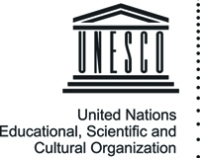Women make up an important percentage of the tourism workforce, but more work must be done to close the wealth and skills gap between men and women employed in tourism, according to a new World Tourism Organization (UNWTO)/UN Women report launched at the just concluded ITB tourism fair in Berlin.
According to the “Global Report on Women in Tourism” – the first survey to map women’s participation in the tourism sector worldwide – tourism, one of the world’s largest generators of wealth and employment, provides a wide range of income-generation opportunities for women, particularly in developing regions. Women are almost twice as likely to be employers in tourism as compared to others sectors. Tourism also offers leadership possibilities, with women accounting for one in five tourism ministers worldwide. Nevertheless, women are often “concentrated in low-skill, low-paid and precarious jobs,” typically earn “10% to 15 per cent less than their male counterparts,” and tend to perform jobs such as cooking, cleaning, and hospitality, states the report.
Gladys Acosta, UN Women Director for Latin America, pointed out that women’s contribution to the tourism sector is often invisible. “In the Caribbean for example, 84% of contributing family work – unpaid – to tourism activities is provided by women. This is one of the key areas to address in promoting gender equality in tourism,” she said.
“This report highlights the crucial role tourism plays in empowering women politically, socially, and economically,” said UNWTO Secretary-General, Taleb Rifai. “But it makes it very clear that more must be done to close the gender gap, in particular ensuing equal pay for men and women for equal work, raising employment quality, and ending all discrimination.”
The report shows relevant data in five main areas: employment, entrepreneurship, leadership, education, and community, comparable by regions. It provides policymakers and operators recommendations on how to promote more gender-sensitive policies and integrate gender equality into corporate decisions, including strengthening the legal protection of women in tourism employment, providing higher-levels of training, and greater opportunities for women to develop their businesses. “Greater gender equality will contribute to the overall quality of the tourist experience, with a considerable impact on profitability and quality across all aspects of the industry,” says the report.
UNWTO upbeat on future of travel, tourism
United Nations World Tourism Organization (UNWTO) Mr. Secretary-General Taleb Rifai has expressed optimism over the future of the industry, maintaining that the next ten years looks set to be “the decade of travel and tourism.”
Rifai, head of the United Nations agency responsible for tourism and travel monitoring, said this at the opening of the ITB Travel Trade Show in Berlin, Germany, last Wednesday, March 9. The event ended Sunday.
“The first decade of the twenty-first century was a decade of extraordinary tourism growth but also of severe shocks: a decade that began with September 11 and ended with global economic crisis,” said Rifai. “Now – with recovery underway and international tourist arrivals up by 7 per cent in 2010 – is the time to look forward and ask what the next ten years hold for our sector.”
Meeting at ITB against a “background of a recovering economy and significant geopolitical shifts,” the world is faced with the diverse and complex challenges of unbalanced economic growth, high unemployment, rising oil prices, and the environmental imperative. As world leaders face up to these challenges, tourism can lead “a new decade of fairer, stronger, and more sustainable growth” said Rifai, “and be one of the most effective agents of development.”
“As traditional economic sectors lose dynamism, it is clear that a second wave of service sectors, including tourism, are emerging. These are the industries that have exhibited particularly strong growth over the past few years. And these will be some of the most dynamic and economically significant industries and development agents of this decade,” he added.











